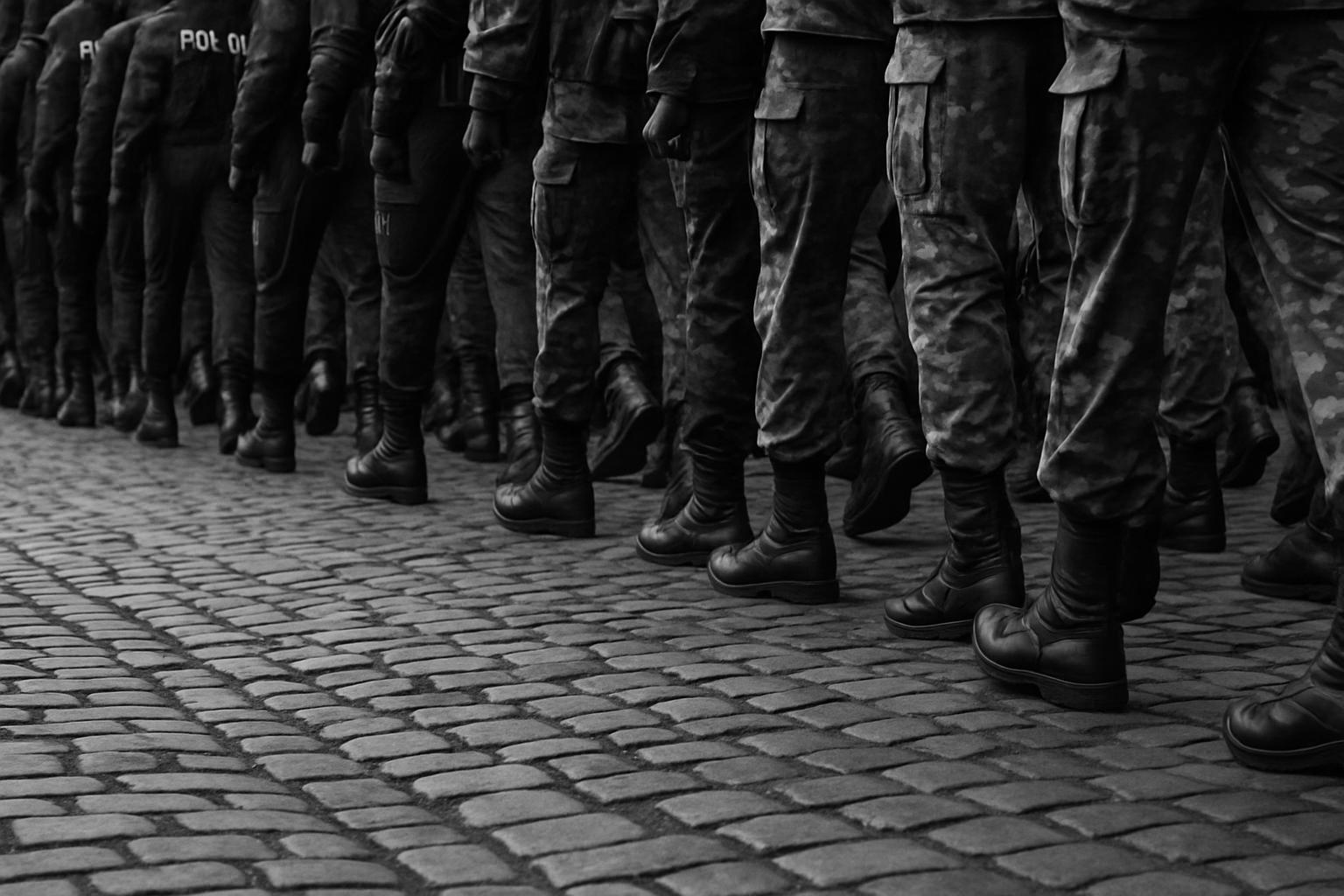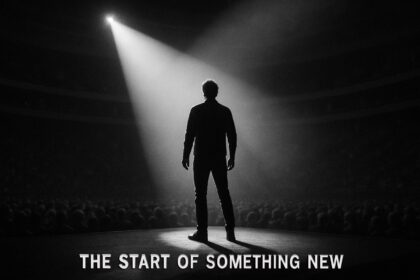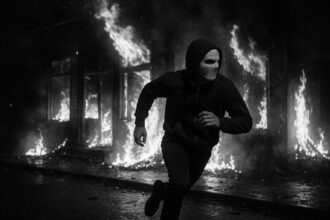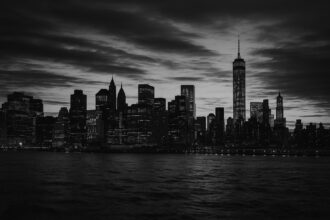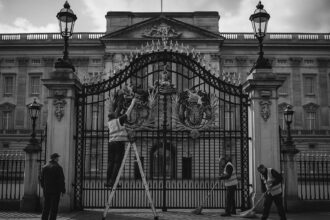In preparation for the NATO summit on 24-25 June 2025, The Hague is implementing a historic security clampdown involving 27,000 police officers and over 10,000 military personnel, introducing extensive road closures, airspace restrictions, and cyber defence measures amid escalating global tensions and defence commitments.
The normally relaxed atmosphere of The Hague is giving way to an unprecedented security clampdown as the city prepares to host the NATO summit on June 24-25, 2025. Known internationally as a hub of peace and justice, with institutions such as the International Criminal Court and the Organisation for the Prohibition of Chemical Weapons, The Hague is transforming into a fortified zone under Operation Orange Shield. This marks the largest security operation in Dutch history, with around 27,000 police officers—approximately half the national force—and over 10,000 military personnel on duty.
The extensive security measures, which include road closures, restricted airspace with drone bans for civilians (countered by police and military drones in the air), and patrols by naval frigates, F-35 fighters, and Apache helicopters, reflect the summit’s significance amid rising global geopolitical tensions, particularly over the war in Ukraine and broader international defence concerns. The summit will see 45 heads of state, foreign and defence ministers, their delegations, and thousands of journalists gathered, requiring tight security at venues such as the World Forum conference centre and events like the leaders’ dinner at King Willem-Alexander’s palace.
Locally, the impacts are keenly felt. Businesses like Gastrobar Berlage have seen customer numbers plummet due to closures and security fencing, with the owner estimating losses up to €150,000 and opting to leave the city temporarily. Residents near the venue face disruptions including public transportation reroutes and the closure of key roads, raising worries about congestion in surrounding neighbourhoods. Authorities have urged those in affected areas to work from home and minimize travel during the summit.
The summit’s agenda prominently features agreements to boost NATO’s military capabilities, with Dutch Prime Minister Mark Rutte, now NATO Secretary General, advocating for a dramatic 400% increase in air and missile defence. The alliance is pushing for member states to meet a collective defence spending target of 5% of GDP, aligning with U.S. President Donald Trump’s calls for European nations to take greater responsibility for their own security. Several European countries have responded with plans to increase their defence budgets and military personnel.
Alongside physical security, cyberdefence forms a critical component of the summit preparations. The Netherlands’ anti-terrorism coordinator has highlighted the risk of disinformation campaigns, cyber attacks, espionage, and social unrest. Authorities are coordinating to counter these threats while allowing several small-scale protests near the summit venue, though larger demonstrations are being directed to separate locations to maintain order.
This security endeavour is supported by neighbouring European countries, contributing to an extensive multinational effort that includes deploying Patriot missiles, anti-drone systems, and special forces on standby. The scale is such that airspace over a 22-kilometre coastal stretch will be closed, and parts of the nearby Schiphol Airport will be restricted, underlining the complexities faced by the host city.
As The Hague temporarily sheds its usual tranquillity for a fortress-like atmosphere, the summit underscores the challenging balance between fostering international diplomacy and managing the security demands of hosting 32 NATO nations amid a complex global landscape.
 Reference Map:
Reference Map:
- Paragraph 1 – [1], [2], [4], [7]
- Paragraph 2 – [1], [2], [4], [7]
- Paragraph 3 – [1], [2], [5]
- Paragraph 4 – [1], [3]
- Paragraph 5 – [6], [7]
- Paragraph 6 – [4], [7]
Source: Noah Wire Services
- https://www.independent.co.uk/news/mark-rutte-the-hague-nato-netherlands-donald-trump-b2772886.html – Please view link – unable to able to access data
- https://apnews.com/article/28c942f01f55967873c0d345ddee91f1 – A comprehensive security operation, dubbed Orange Shield, is underway in The Hague, Netherlands, in preparation for the NATO summit on June 24-25, 2025. The summit is expected to host leaders from all 32 NATO member states, including U.S. President Donald Trump. The heightened security measures include road closures, airspace shutdowns, diverted public transportation, and the deployment of approximately 27,000 police officers—half of the national force—alongside over 10,000 military personnel. Additional measures encompass patrols by frigates, flights by F-35 fighters and Apache helicopters, active bomb squads, and cybersecurity protocols. The summit will address geopolitical concerns, focusing on increased NATO defense spending and the war in Ukraine. Local businesses, such as Gastrobar Berlage, are experiencing significant financial losses due to reduced foot traffic and enforced closures, with some owners choosing to temporarily leave the city. The event’s venue is located near key international judicial bodies, highlighting the city’s dual identity as both a hub for peace and a temporary fortress during global summits.
- https://www.reuters.com/business/aerospace-defense/nato-needs-400-increase-air-missile-defence-rutte-will-say-london-2025-06-09/ – NATO Secretary General Mark Rutte is set to deliver a speech in London advocating for a 400% increase in air and missile defense capabilities, emphasizing this as a critical priority for the upcoming NATO summit in The Hague on June 24-25. He underscores the necessity of enhanced defense capabilities by citing ongoing Russian air assaults in Ukraine and insists that threats will persist beyond the conflict. Rutte also calls for deeper financial commitments from NATO member states, proposing a defense spending increase to 3.5% of GDP, with an additional 1.5% allocated to broader security measures, aligning with U.S. President Donald Trump’s demand for a total 5% defense spending target. Several European nations are responding: the UK aims to boost its defense budget to 2.5% of GDP by 2027 with a future goal of 3%, and Germany plans to add 50,000–60,000 active soldiers to meet NATO’s new requirements. These initiatives come amid heightened pressure for Europe to take more responsibility for its defense amid ongoing conflict and shifting U.S. foreign policy expectations.
- https://nltimes.nl/2024/12/20/largest-police-operation-dutch-history-planned-nato-summit – The Netherlands is preparing for the NATO summit in The Hague on June 24-25, 2025, by deploying 27,000 police officers, marking the largest security operation in Dutch history. This effort aims to ensure the safety of 45 heads of state and government leaders, 45 foreign ministers, 45 defense ministers, and 6,000 delegation members, along with securing transportation and accommodations. The summit will include high-level meetings, press conferences, and official dinners, attended by 2,000 journalists. Police will be stationed in The Hague, Schiphol Airport, and along transportation routes between the airport, hotels, and conference venues. Specialized units, including mobile units, security units, reconnaissance teams, and motorcycle officers, will be involved in escorting delegations and securing key locations. To ensure adequate staffing, police leave will be restricted during the summit period, and municipalities have been requested to limit other public events during this time.
- https://www.intertraffic.com/news/traffic-management/navigating-the-nato-summit – The Netherlands is implementing extensive traffic management strategies in The Hague for the NATO summit scheduled for June 2025. The closure of Johan de Wittlaan and surrounding areas is expected to divert traffic into adjacent residential neighborhoods, raising concerns about congestion and safety on streets not designed for heavy traffic. Local residents, particularly in the Statenkwartier district, have expressed apprehension regarding the potential for overwhelmed infrastructure and increased risk of accidents. The Dutch government plans to deploy 27,000 police officers (half of the entire force) nationwide for the summit, making it the largest security operation in the country’s history. Officers will be stationed in The Hague, at Schiphol Airport, and along transport routes between the airport, hotels, and conference venues. Specialized units, including mobile units, security units, reconnaissance teams, and motorcycle officers, will be involved in escorting delegations and securing key locations. To ensure adequate staffing, police leave will be restricted during the summit period, and municipalities have been requested to limit other public events during this time.
- https://www.dutchnews.nl/2025/05/warning-of-disinformation-during-june-nato-summit-in-the-hague/ – The Netherlands’ anti-terrorism coordinator has warned of a potential surge in disinformation during the upcoming NATO summit in The Hague. Pieter-Jaap Aalbersberg stated that security services are preparing for possible cyber attacks, espionage, and social unrest when delegates gather in the city on June 24 and 25. He emphasized the scale of the operation, describing it as the largest logistical effort ever to take place on Dutch soil. Authorities will coordinate efforts to identify and address disinformation, deciding on appropriate responses and communication strategies. Approximately 27,000 police officers and 5,000 armed forces personnel will be on duty in The Hague during the summit. The government has advised residents in the area to work from home if possible and others to avoid traveling to the area. While small-scale protests around the World Forum, where the summit is being held, will be permitted, large demonstrations will be directed to the Malieveld.
- https://www.irishtimes.com/world/europe/2025/05/09/netherlands-will-undertake-huge-security-operation-during-nato-summit/ – The Netherlands is preparing for a massive security operation during the NATO summit in The Hague at the end of June. This will be the largest logistical operation ever mounted by the country during peacetime, with significant input from Germany, the UK, France, Italy, and Spain. Patriot missiles and anti-drone defenses will be deployed to protect the physical airspace above the Netherlands, while its security services guard against potential cyberattacks. Approximately 27,000 police officers and 5,000 soldiers will be on duty over the two days, protecting 45 heads of state, their senior ministers, and delegations. Key locations include the World Forum convention centre, where the summit will be held; Huis ten Bosch, the palatial residence of King Willem-Alexander, where the leaders will have dinner; and Huis ter Duin hotel, where President Trump is scheduled to stay. Air exclusion zones will be established along a 22km stretch of coast from the Hook of Holland to Noordwijk, where the president’s hotel is located. Two runways at Schiphol will be closed during the summit, and aircraft using the airport will be banned from flying within 16km of The Hague, the seat of the Dutch parliament. Special forces teams will be on 24-hour standby. The scale of the deployment is such that neighboring countries, including Germany, the United Kingdom, France, Italy, and Spain, will have substantial security input.
Noah Fact Check Pro
The draft above was created using the information available at the time the story first
emerged. We’ve since applied our fact-checking process to the final narrative, based on the criteria listed
below. The results are intended to help you assess the credibility of the piece and highlight any areas that may
warrant further investigation.
Freshness check
Score:
10
Notes:
The narrative is current, published on June 19, 2025, and pertains to events occurring imminently, with the NATO summit scheduled for June 24-25, 2025. No earlier versions of this specific content were found, indicating high freshness.
Quotes check
Score:
10
Notes:
The report includes direct quotes from local business owner Bianca Veenhof, stating, “It’s dead,” regarding the impact of security measures on her establishment. No earlier instances of this exact quote were found, suggesting originality.
Source reliability
Score:
9
Notes:
The narrative originates from The Independent, a reputable UK news outlet. While The Independent is generally considered reliable, it’s advisable to cross-reference with other reputable sources for comprehensive verification.
Plausability check
Score:
10
Notes:
The described security measures align with known preparations for the NATO summit in The Hague, including road closures, airspace restrictions, and significant police and military deployments. These measures have been reported by multiple reputable sources, confirming their plausibility.
Overall assessment
Verdict (FAIL, OPEN, PASS): PASS
Confidence (LOW, MEDIUM, HIGH): HIGH
Summary:
The narrative is current and original, with direct quotes from a local business owner and corroborated by multiple reputable sources. The source is reliable, and the described events are plausible and consistent with known preparations for the NATO summit.


